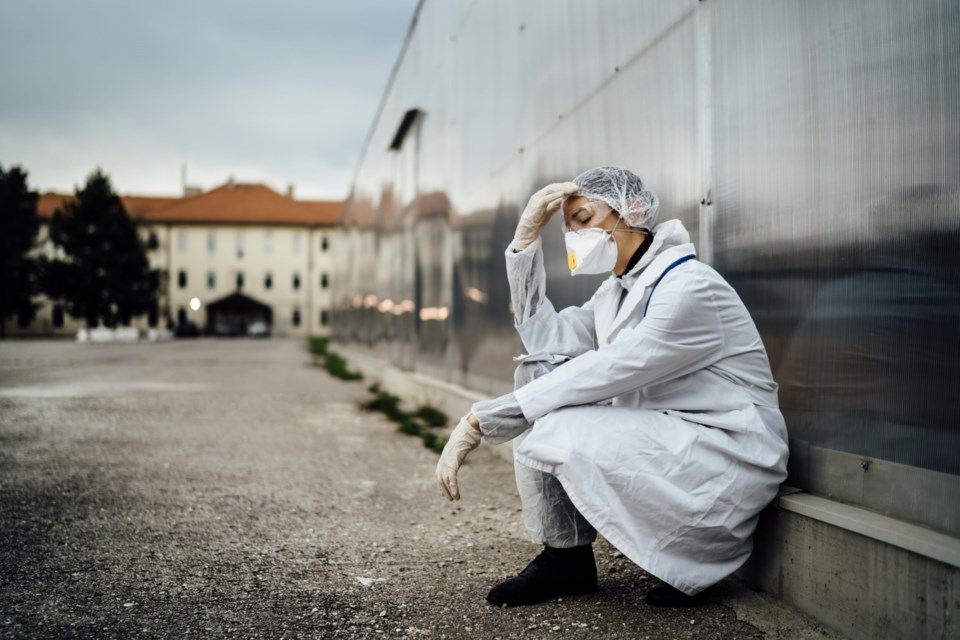The longest disease pandemic, according to the good folks at Guinness World Records, is the Seventh Cholera Pandemic, which began in Indonesia and began to spread widely in 1961. Sixty years later, the pandemic is still going strong, infecting 3 to 5 million every year.
Cholera is a disease of poverty. Poor sanitation and lack of safe drinking water lead to the spread of the bacterium that cause severe diarrhea and dehydration. Every year there are between 21,000 and 143,000 deaths worldwide due to the disease, according to the World Health Organization.
The COVID-19 pandemic has not been going on for six decades – it just feels that way. And we’re about to enter the hardest part of the pandemic, the one that is almost entirely self-inflicted.
In zombie movie plotting, it’s the part where the undead cease to be the problem as humans’ inhumanity to other humans takes centre stage.
The anti-vaccination protests outside of hospitals recently is certainly not a good sign that we’re going to buck the predictable plot of a zombie movie. Forcing cancer patients to wade through a sea of unmasked, unvaccinated fools to receive treatment doesn’t bode well for the survival of humanity, and not just humans.
Combatting COVID has always been an art, not a science. That’s the problem with a novel coronavirus – it’s novel. New. Not been seen before.
As of Sept. 9, there have been 1,533,466 total cases of COVID-19 in Canada and 27,134 deaths. If you’re keeping count, that’s more than are lost annually to homicide, suicide, accidents, and influenza and pneumonia combined.
B.C. has not done badly, when you look around the world. But we’re about to enter into the most dangerous phase, not because of the infectiousness of the Delta or any other variant, but because of the rapid spread of pandemic fatigue.
We’re all tired. But we are in the home stretch. Courage.
By most accounts, a vaccine for children will be available by the end of this year or soon thereafter. Once all Canadians have had reasonable access to a vaccine, we will need to come to the conclusion that all of those who are willing to be vaccinated, have been; and those who are not, will not.
Life will need to go on. We can’t continue to doom-scroll the latest death toll or argue the science of long-proven vaccine technology.
We will need to have look at lessons learned over the past 21 months, and COVID itself will not be chief among them.
We’ll need to look and talk about and try to come up with some solutions to the massive amounts of misinformation out there and the not unrelated issue of distrust in politics and media.
We need to talk about the understandable collapse of confidence in the pharmaceutical industry, and related to that in the medical industry.
We need to talk about and understand how civic responsibility has been so completely sacrificed at the altar of personal rights and freedoms.
And we need to do something about the over-consumption of U.S. culture in Canada, where most people now seem to have no ability to distinguish between the two.
Dene Moore is an award-winning journalist and writer. A news editor and reporter for The Canadian Press news agency for 16 years, Moore is now a freelance journalist living in the South Cariboo.
SWIM ON:
- Dene Moore: “I wish I could tell you more about the Afghans I got to know covering the war. But until they are on Canadian soil, their lives and the lives of their entire families are very much in danger.”
- In May 2020, Anil Anand looked at the abject failure in the US and India to respond effectively to COVID-19.
- We need more economic participation and educators need to value the food industry as a viable career path, says Sylvain Charlebois - the pandemic isn't solely to blame for the labour shortage there.



